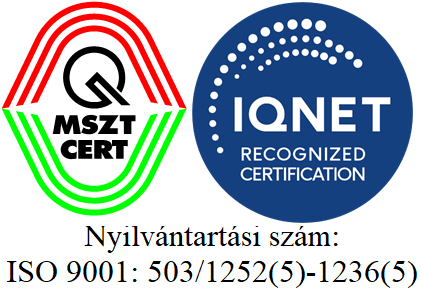Press release on the visit of dr. Mohamed ElBaradei, Director General of the International Atomic Energy Agency to Hungary
2005.10.11
At the invitation of the Director-General of the Hungarian Atomic Energy Authority, the Director-General of the International Atomic Energy Agency (IAEA), Dr Mohamed ElBaradei, paid an official visit to Hungary on October 9-10. The visit of the Director-General of the IAEA was organised by the Ministry of Foreign Affairs, and the Hungarian Atomic Energy Authority.
The Director General of the IAEA had a meeting in the Parliament with Ferenc Gyurcsány, the Hungarian Prime Minister. Mr. Gyurcsány expressed its appreciation for the activity of the IAEA and congratulated for the Peace Nobel Prize awarded on Friday afternoon last week. Mr. Ferenc Somogyi, Minister of Foreign Affairs also take part in the meeting.
For the long-standing excellent relationship between Hungary and the IAEA, the strategic weight of the Paks Nuclear Power Plant (NPP) and Hungary`s role in maintaining and operating the international non-proliferation regime are of paramount importance.
The operation of the safeguards system aimed at the prevention of the proliferation of nuclear weapons is one of the most important areas of the activity of the IAEA. In this regard the Hungarian activity in the operation of its safeguards system is highly appreciated by the Agency. For this, our commitment to the non-proliferation system and the regular role of the Hungarian diplomacy in the review process of the non-proliferation treaty have been instrumental, too, and it is worth to mention that, in the course of the activity aimed at strengthening and modernising the safeguards system, Hungary takes a permanent role in testing and experimental implementation of new investigation methods. Hungary is one of the first countries with a considerable nuclear industry, which introduced the so-called integrated safeguards system, already in November 2004. At the consultations in the Parliament the Director-General of the IAEA emphasized that he sets high value on the pioneering role of Hungary in this sphere.
As the Paks Nuclear Power Plant provides almost 40 per cent of the Hungarian electric energy production, the safe and reliable operation of the NPP is of strategic importance. In recent years our cooperation has concentrated mainly on the issues related to the life-time extension of the Paks NPP and the managing the low and intermediate level radioactive waste. These were the items on the agenda between the Director-General of the IAEA and Mr. János Kóka, Minister of Economy and Transport. Their meeting took place in the biannual meeting of WANO (World Association of Nuclear Operators) held in Budapest where they both participated in the opening ceremony.
The Director-General of the IAEA was pleased to meet Mr. László Sólyom, President of the Republic of Hungary, the discussion of constructive atmosphere between them can certainly be attributed, among others, to the similarity of their fields of interest (i.e. international law). At the discussions the new International Convention on the Suppression of Acts of Nuclear Terrorism prepared and approved at the General Assembly of the United Nations in April, 2005, came into question. It was signed, on behalf of Hungary, by Mr László Sólyom, President of the Republic of Hungary, in New York, September 14, 2005.
The visit of the Director-General of the IAEA in Hungary constitutes an important step forward in the relationship between the IAEA and Hungary. In the course of the discussions, the representatives of the Hungarian Government assured the Director-General of the IAEA that Hungary firmly supports the efforts of the IAEA aiming at strengthening global safety. The Director-General emphasised that his experiences in Hungary affirmed his conviction that our country is committed to maintaining nuclear safety, and the IAEA will continuously support the safety of the peaceful utilisation of atomic energy.
October 10, 2005
József Rónaky
Director General




 ©HAEA - All rights reserved
©HAEA - All rights reserved